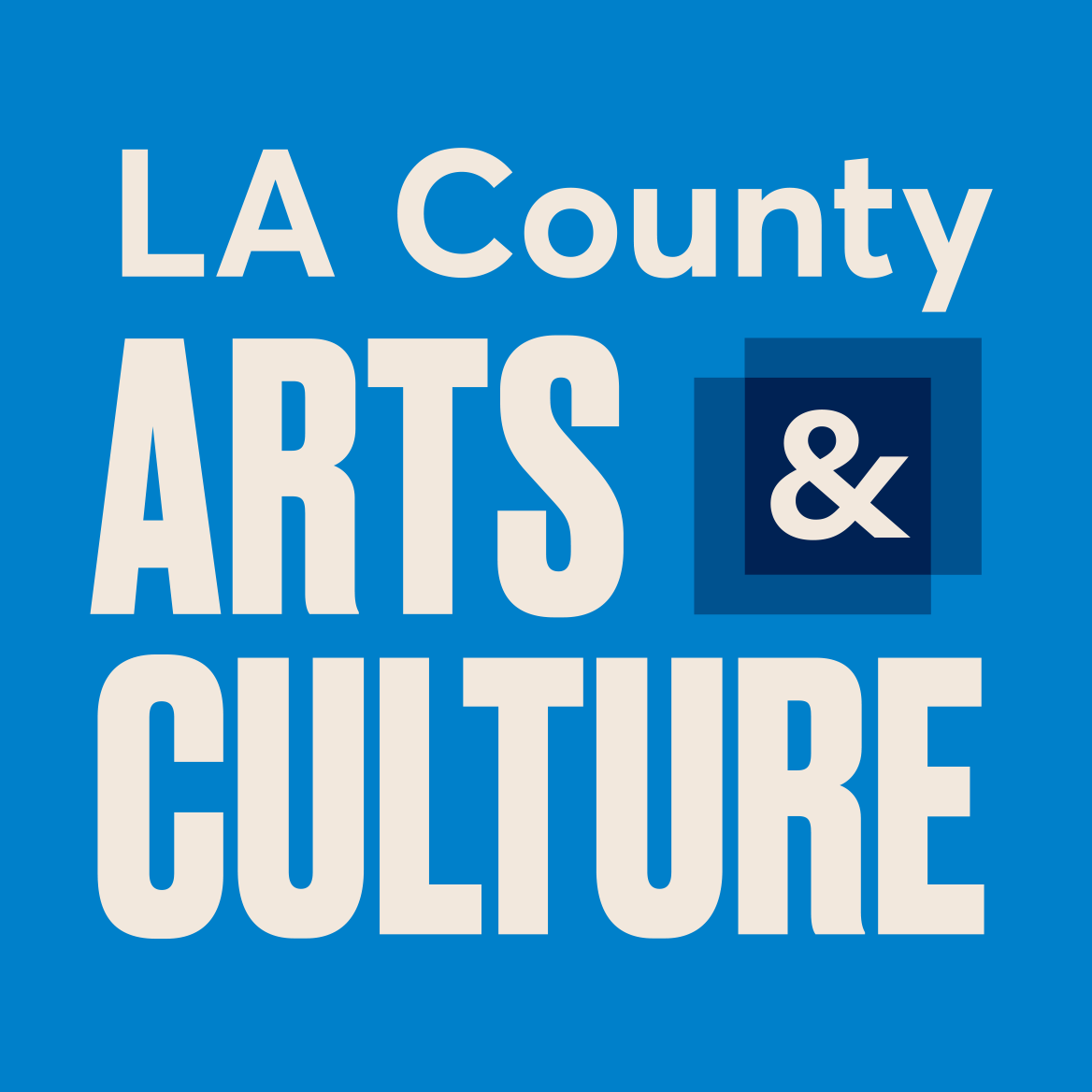Los Angeles County Arts Commission Transitions to First Official Los Angeles County Department of Arts and Culture
Local Agency Advances Arts, Culture, and Creativity for the People of LA County
July 1, 2019—Today the Los Angeles County Department of Arts and Culture, formerly the Los Angeles County Arts Commission, becomes an official, and new, County department. The agency’s longstanding work will continue uninterrupted, including grant funding for hundreds of nonprofit organizations throughout LA County; commissioning works of art for public facilities and managing the County’s civic art collection; implementing the initiatives of the LA County Arts Education Collective, which works to ensure all students in the County receive quality arts education; and researching and evaluating, then making accessible, findings in and about the local arts and culture sector.
The newly established department will further elevate the role of arts and culture for the County’s more than 10 million residents. Among the department’s areas of continued growth are increasing access to career pathways in the creative economy; building new cross-sector collaborations with County departments (such as the Creative Strategist Artist in Residence program); and implementing the County’s Cultural Equity and Inclusion Initiative, known as CEII, a cultural plan with a progressive suite of recommendations to strengthen diverse, equitable, and inclusive access to arts and culture for everyone in the County.
"Arts are essential to our humanity, and a key part of healthy, vibrant communities," said Kristin Sakoda, Director of the Los Angeles County Department of Arts and Culture. "Investing in the cultural life of all of our communities is vital. Our work supports the full breadth of the Los Angeles County arts and culture ecosystem—from formidable museums and presenters, to small non-profits and community-rooted organizations. As the County department dedicated to advancing arts, culture, and creativity throughout the County, we will be able to elevate and expand this work to reach more people, more deeply, in more diverse ways."
The LA County Arts Commission was established in in 1947 to support local music performances. Its role has grown to support diverse art forms and function as a full-service arts agency. Supervisors Mark Ridley-Thomas and Sheila Kuehl co-authored the historic motion that transitions the Arts Commission into a stand-alone County department in May 2018, a recognition of the vital role of arts and culture in one of the largest and most diverse counties in the country.
"In its previous iteration, the Arts Commission has been a small but mighty undertaking, excelling in its work to increase access to the arts, to innovate in areas of grant-making, and to create career pathways for people in underserved communities. As Los Angeles County’s creative economy grows ever more potent by the day, I am excited for what is to come as it begins a new chapter as the Department of Arts and Culture," said Supervisor Mark Ridley-Thomas, the transition motion’s lead author.
The 15-member Arts Commission, an advisory body appointed by the Board of Supervisors, will continue to advocate on behalf of the new department. "I am proud to serve as President of the Los Angeles County Arts Commission as we transition to the Department of Arts and Culture," said Helen Hernandez, Arts Commission President. "We are thrilled that the Board of Supervisors has seen the value and importance of elevating the Commission to a Los Angeles County department so we can expand our reach and efforts to provide cultural, equity and inclusion to all residents."
About the Los Angeles County Department of Arts and Culture
The mission of the Los Angeles County Department of Arts and Culture is to advance arts, culture, and creativity throughout LA County. We fulfill our mission by providing services and support in areas including grants and technical assistance for nonprofit organizations; professional development opportunities; commissioning civic artworks and managing the County's civic art collections; implementing countywide arts education initiatives and the Arts Education Collective; research and evaluation; career pathways in the creative economy; free community programs, and cross sector creative strategies that address civic issues. This work is framed by the County’s Cultural Equity and Inclusion Initiative and a longstanding commitment to fostering access to the arts.

